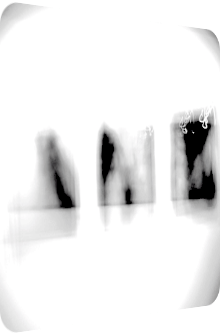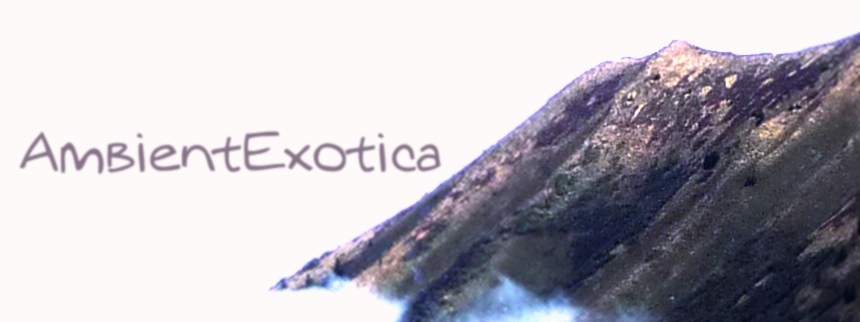
Koji Kihara
Reprobate Space
2012
At the time of publishing this review, not much is known about the Japanese electro-acoustic musician Koji Kihara. No easily available biography, no driving force, no artistic value is mentioned anywhere; in 2013, these are normally bad signs in a rapidly growing market of bedroom musicians and short attention spans. But the artist reserves any attention he can get, and as I found out much later, Kihara's fanbase is strong: John Doak alias Fontaine has added the artist to his Cuisine selection of great Bandcamp releases. Now is the time to remember the old saying "music breaks boundaries," so whether we will hear a lot more about this artist in the future or not, the object of my desire, called Reprobate Space, is worth your while as well. Even better, all of its five tracks are available to download for free at Bandcamp. It is incredibly hard to describe the mood or prospect of Kihara's EP, and once a release shows me the limits of my skills as a reviewer in embarrassing clarity, I deem it very interesting. Sitting somewhere in-between the Glitch and the Drone genres, the Japanese artist interweaves clear acoustic guitar layers with their processed brethren, adds iridescent slivers and rounds off the soul of the arrangements with drone washes that oppose the warmth or innocence. This has been done before. Many times. The humbleness is Kihara's sharpest weapon. With the exception of one particular tune, the drone layers are strangely reduced, seem modest, fragile and harmless, cover all the holes of the stuttering structures and extend their fluffiness. But these devices are somehow mean-spirited and gloomy, cause uneasiness despite their humble appearance… and form an exciting unity. It may be a cliché or a trap I'm walking right into, but I for one hear the Japanese characteristics of tranquility, contemplation and solemnity all over Reprobate Space. That the EP intertwines parasitic noises without loosing these qualitative aspects is worth pointing out in greater detail.
A Boring Monday Evening marks the first scenery of Kihara's EP. Not only is it the longest track with way over six minutes, it also shows the clearest progression and is built on three shape-shifting sequences. Dark bonfire acoustic guitar strings are plucked and ennobled by a blurry mellowness, with only the slightest hints of dissonances brought in by gelid particles. The mood is wondrous and potentially snugly, but returns to darker undertones of claustrophobia and irregularities time and again. These darker phases are by no means threatening or spine-tingling – not now, not on this track – but display moments of grey shadows which defile the otherwise whitewashed atmosphere. The track ends with a warmhearted guitar solo in front of a whisper-quiet backdrop, an unnecessary afterthought to my mind, for it lessens the jinxed, carefully crafted duality of the track quite a bit. In the end though, the contradicting conflicts of this piece are strong forces which outshine the lackluster appendix with their ashy luminescence. The following The Guitar In The Back Of The Chest Of Drawers creates its superstructure from the same well of warring oppositions. A sixteen-note guitar leitmotif whirrs along in a silky manner, all of its notes are close to each other, perfectly in sync and balmy. Only an infinitesimally crackling scratchiness is admixed as a harbinger of mystique. And mystique we shall receive: a slowly growing drone stream of spectral, distantly siren-resembling traits counteropposes the amicable mood in a twisted way. Never does the drone seize power over the guitar, it wafts like a toxic cloud in the distance. Despite its fragility, it seems hazardous. Its power derives from the supposed weakness. A haunting piece.
Irregular Consonance is the a short interlude below the 60-seconds-mark. Staccato echoes of a warped Space-Age wideness are gyrating around plinking guitar tones. The discordance factor is huge, but this vignette remains an enigma, since it ends all of a sudden before the listener can adjust to it. A longer crystallization of the many layers would have been a great benefit to the momentum. The next composition, however, compensates for the shortness: Signal From The TV is a Ringu-suggesting critter that camouflages its Dark Ambient origins in generous amounts of fog. Echoey reverberated driblets are bathing in a misty aura of a dazzling greyness. The drones are terrifically omnipresent and encapsulating. Tense sirens and stretched red-tinted lights augment the nervosity, as do the ghostly apparitions and distant incomprehensible voices. Whereas the previous material was pastel-colored, the grey-scaled saturation is revved up, the voluminosity has reached a peak in this proper Drone track. Guitars are presumably in here as well, but they are heavily processed and altered. It is a great Dark Ambient tune, not overly cryptic or abyssal, but definitely eerie. The outro Complicated Melody Of Electronic Sound closes the EP in a slightly brighter way. The amount of fog decreases decidedly, the softly hammering guitar monotony and constant woodpecker-oid blebs are pulsating in-between and around a crunchier airflow with traces of glinting tone sequences. Resembling the jitter-esque warmth of Oval's works of the mid-90's – Systemisch and 95 Diskont of 1994 come to mind – and presenting a curiously laid-back form of existence, Complicated Melody Of Electronic Sound is the most harmonious track with no counteracting force. The mood is hard to pinpoint, as it does not seem to be inviting rather than strangely independent, but that is Kihara's actual achievement.
Reprobate Space is an EP that perfectly masks the ongoing fight of its oppresive layers with euphonious guitar twangs and potentially cozy drone layers. Shuttling between Glitch and Drone, the grey haziness is definitely luring, at times even moony, but the well-balanced advection of uneasy driblets as contrastive devices make it a great little artifact. The drone layers are tame, pristine and positively shallow, their depth and impact seem to be low. And yet do they leave a lasting impression in tandem with the gelid guitar loops. The structure of the EP is fissured, the sounds ooze through the cracks, everything seems to pulsate and oscillate thanks to the echoey effects. What is left is the strong feeling of a late 90's or early millennial Glitch record: despite the mid 90's analogue warmth, the intrinsic landscape is mystified and hard to narrow down. My comparisons to the Dark Ambient genre and the many murkier undertones do not make Reprobate Space a truly frightening release. It is rather strangely detached from a truly descriptive poignancy. The entanglement of the elemental forces, of Glitch and Drone, forbids a definite coining. There are no sudden outbursts of euphoria or darkness; subtlety and deception are probably two terms which aptly describe Koji Kihara's EP. Since it is available for free, you can easily check it out yourself. Reprobate Space is an inconspicious work, a prototypical grower, strangely independent and bubbling.
Further listening:
You can download Reprobate Space for free via this Bandcamp link.
Ambient Review 176: Koji Kihara – Reprobate Space (2012). Originally published on Jan. 30, 2013 at AmbientExotica.com.
